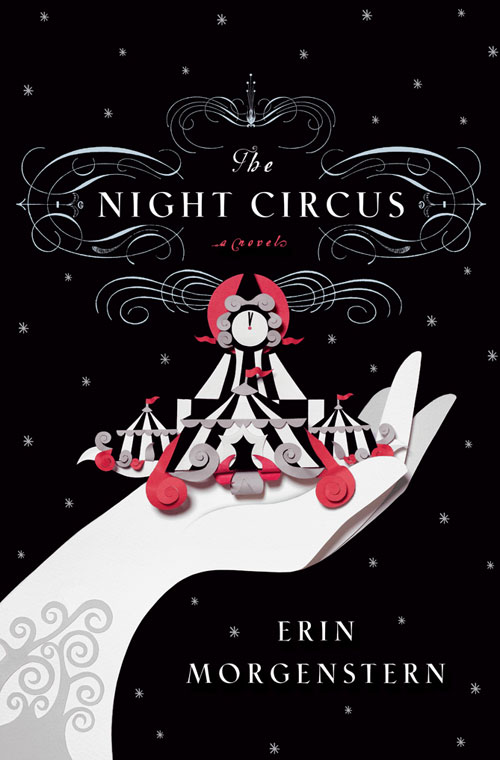Recently, The New York Times published "Your Brain on Fiction," an article that examined the neuroscience of reading imaginative literature, reporting that reading about smells and actions stimulates the brain in the same way that living those experiences does. In short, our brains treat the fiction as reality, showing that our long-standing metaphor of fiction bringing new worlds to life is, in terms of brain function, a literal as well as figurative truth. The article ends with the following lines: "Reading great literature, it has long been averred, enlarges and improves us as human beings. Brain science shows this claim is truer than we imagined."
A friend of mine forwarded The New York Times article to me as I was reading Erin Morgenstern's debut novel The Night Circus, and if there was ever an invented world you might be glad to descend into and live in a while, this is it. Morgenstern's novel is rich in precisely the kind of detail most likely to stimulate our minds: the dark caramel of a coated apple, the scent of popcorn on a clear night. Her novel imagines for us a circus more amazing than the most wonderful we've been to and brings the place to life through rich images that leave our mouths watering.
I've heard that the seeds for this novel began not with character or plot but with setting, the circus itself, and I believe it. Morgenstern peppers the novel with brief second person chapters that invite us in to new tents and passage ways. These moments reminded me strongly of Italo Calvino's Invisible Cities both in their image-driven beauty and their poetic language. (OK, maybe not quite so poetic as Calvino, but that would be setting the bar impossibly high, would it not? But they are rich and beautiful and finely wrought.)
What grounds the novel is the plot and characters that Morgenstern applied once she had created this amazing circus. Whereas Calvino's prose poetry collection is very loosely "plotted" with the story of Marco Polo explaining the places he's been to Kublai Khan, The Night Circus is more firmly grounded in a magicians' battle. Two children have been bound against their wills to compete for magical supremacy and the circus is their venue, the place where they test their skills against one another by creating ever more fantastical tents.
The result is a high interest page-turner with a literary quality, a novel that those who love fantasy and those who love language can enjoy equally.

No comments:
Post a Comment